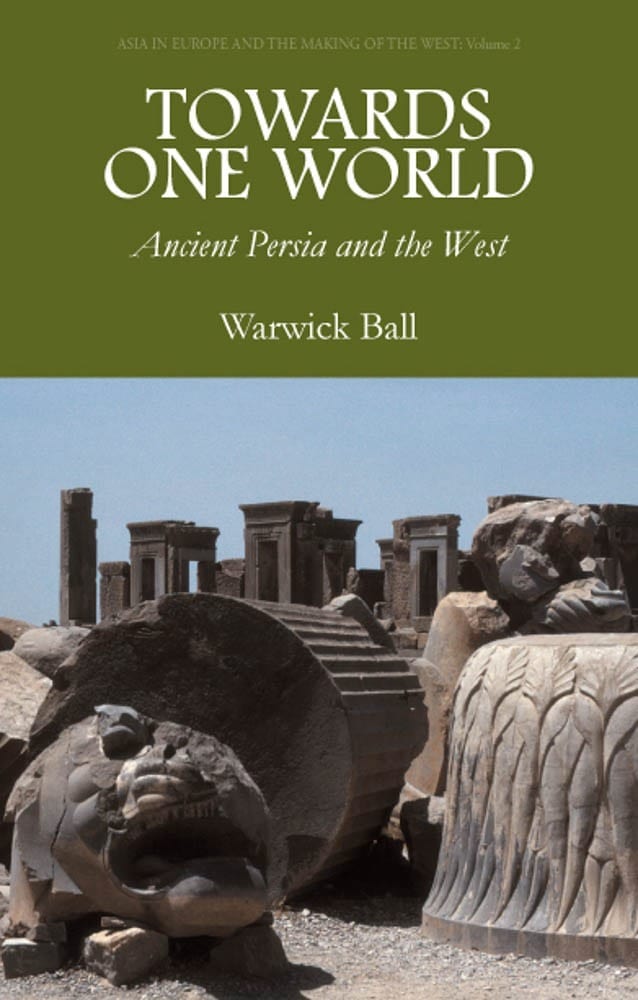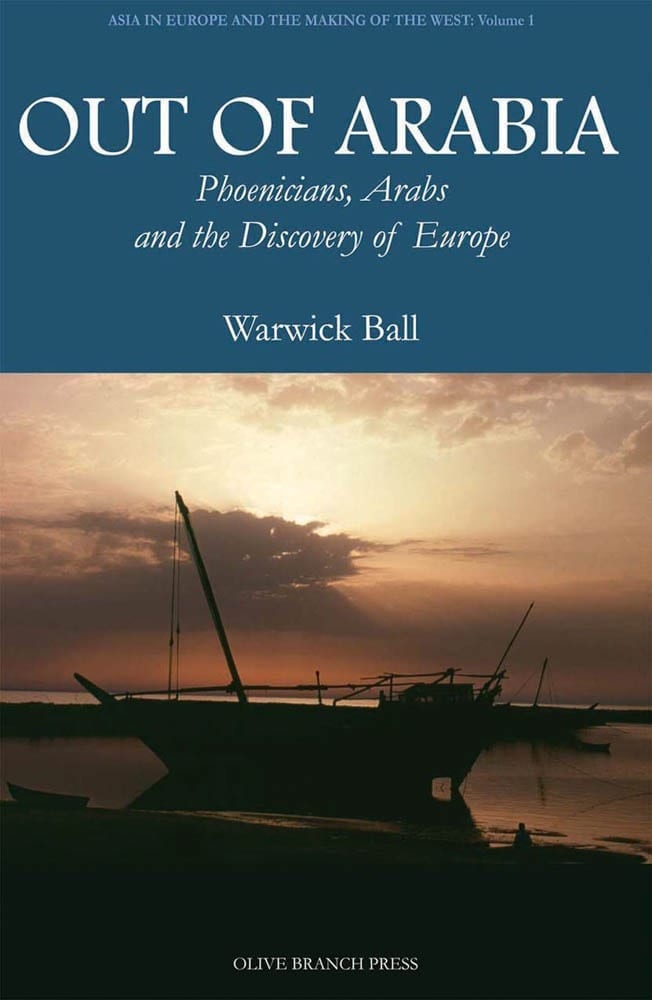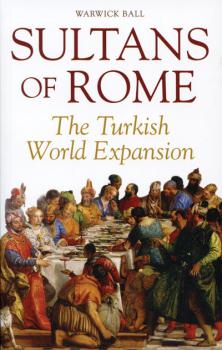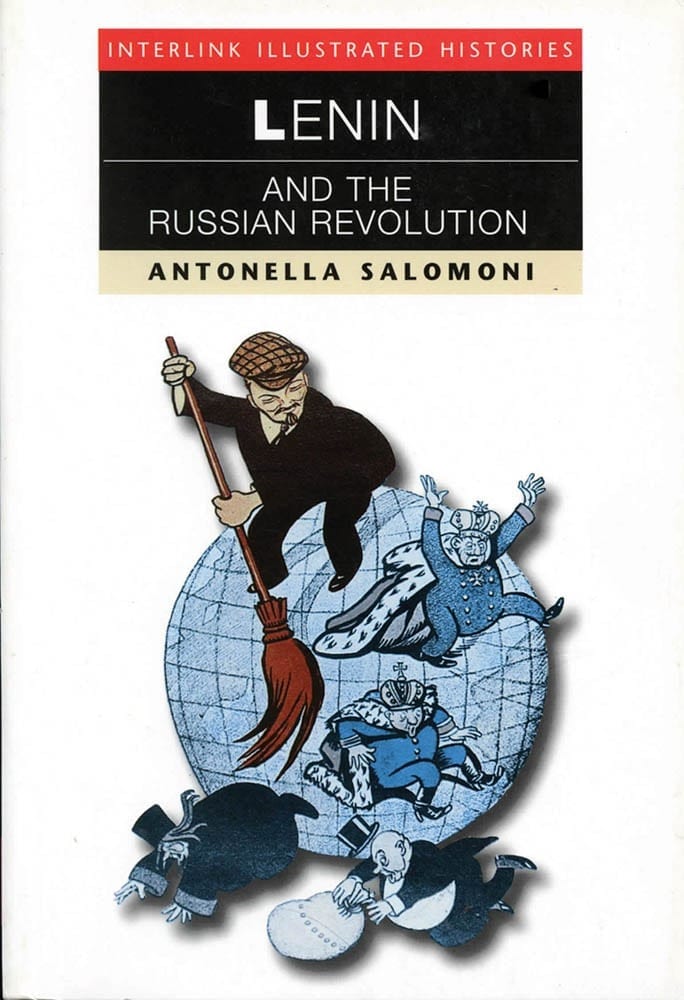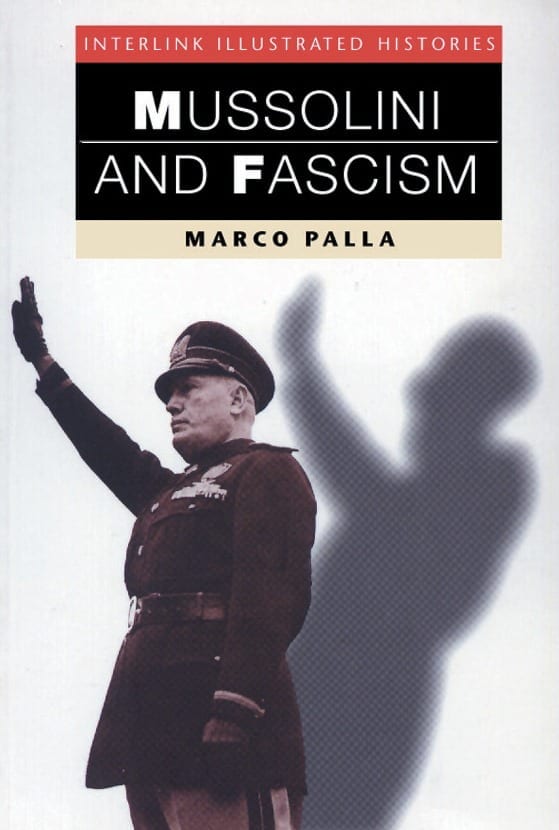Book Size: 5.5" x 8"
Pages: 272
Format: Paperback
ISBN: 9781566568012
Series: Asia in Europe and the Making of the West
Imprint: Olive Branch Press
Edition: 1
Illustrations: 97 full-color photos
Release date: 01/03/10
Category: History/Politics/Current AffairsOut of Arabia
Phoenicians, Arabs, and the Discovery of Europe
By Warwick Ball
$ 22.95“An original and thought-provoking approach to Arab history…” — History Book Review
About this book
The first volume in a series that examines the spread of cultures from the East into Europe.
Arab history is often viewed as beginning with Islam. But the Arabs have a history going back thousands of years before-one, furthermore, intimately bound up with European history and identity. Arab kingdoms in the Near East had a dramatic impact upon the Romans from the first century BC, and by the third AD Arab emperors were ruling in Rome itself. Even long before the Romans, the Arabs' forbears, the Phoenicians, were exploring the coasts of England and West Africa and colonizing much of Spain, Sicily and North Africa in the early first millennium BC. The Arabs were to continue this tradition of world penetration long before the European "Age of Expansion." Islam, therefore, was as much a culmination as a beginning.
The arrival of the Arabs in Spain in 711 and the continuation of Islam's Caliphate in Cordoba after a second one had been established in Baghdad-not to mention Emirates in the Balearics, Sicily and southern Italy and further penetration into much of Italy, France and Switzerland-can thus only be understood as a part of a process that had already been under way for several thousands of years. The first movements of the Phoenicians out of their Near Eastern homeland towards the West form an essential background to the later movements of their Arab descendants in the same direction. Even after the rise of Rome brought an end to Phoenician expansion, the unification of the Mediterranean under the Romans meant that this complex interaction between the peoples of Europe and the Near East was accelerated.
Phoenicians and Arabs therefore form a part of European history that is both European and Asiatic, a part that defines and makes Europe what it is-cultures that can no more be excluded from Europe than the Viking, Roman or Greek. Europe, in other words, has been engaged with a complex relationship with the Arabs and their immediate forbears throughout its history. This book is an account of that relationship.
About the author
Warwick Ball, a Near Eastern archaeologist and author, has spent over twenty-five years carrying out excavations, architectural studies and monumental restoration throughout the Middle East and adjacent regions, having lived, worked and traveled in most countries between the Mediterranean and China. He is currently director of Eastern Approaches, a special-interest cultural tours company specializing in the East.
Author of many books and articles on the history and archaeology of the region, his book, Rome in the East: the Transformation of an Empire, was winner of the James Henry Breasted History Prize and was Choice Outstanding Academic Book in 2000. Born in Australia, Warwick Ball now lives in Scotland.
Reviews
“…noted archaeologist Warwick Ball asserts that the ‘West’ is ‘ill-defined’ and that the Arab ‘discovery of Europe’ long predates Islam. He explains that terms such as ‘Arab,’ ‘West,’ ‘Asia,’ and ‘Europe’ have never been geographically stable despite Eurocentric narratives that pretend as though they are. Indeed, the main historical narratives of the United States are so anglophilic that the British/American twentieth-century partnership is often assumed to have developed naturally, with only momentary interruptions during the War of 1812 and the American Civil War. By challenging similar myths from the ancient world, Ball persuasively demonstrates the significance, might, and breadth of Arab empires that spanned today’s Middle East and North Africa. Focusing on ‘the layers of civilisation,’ Ball demonstrates that ‘Arabs’ were considered a ‘distinctive people’ to whom ‘west’ meant west of the Euphrates, a location certainly not seen as Western today.” — Foreword Magazine
“An original and thought-provoking approach to Arab history… most writers today whose work examines the relationship between Arabs and ‘the West’, Ball is determined to avoid an approach purely focused on confrontation… Whilst he obviously cannot avoid discussing conflict between Europeans and Arabs — most notably during the Crusades — Ball is keen to stress the more subtle and positive ways in which Europe has been affected by its contact with the Arabs. … It would be a mistake, however, to view Arab history entirely within an Islamic context. … Ball argues strongly that Islam should be viewed as a ‘culmination’ rather than a beginning. Fascinating early chapters examine the history of the Arabs’ forbears, the Phoenicians… some of the outcomes are surprising, and remain little known today. How many people know, for example, that for much of the 10th century a large part of Switzerland was occupied by the Muslim descendents of Arab corsairs? … Ball writes in a lively, engaging style that should carry most readers to the end of the book. More generally, this is a timely and interesting work that deserves to reach a wide readership. Out of Arabia is the first of a series of books examining the impact of ‘Eastern’ cultures on Europe, and I eagerly await the appearance of further volumes.” — History Book Review
Additional information
| Cover Type | |
|---|---|
| test |


